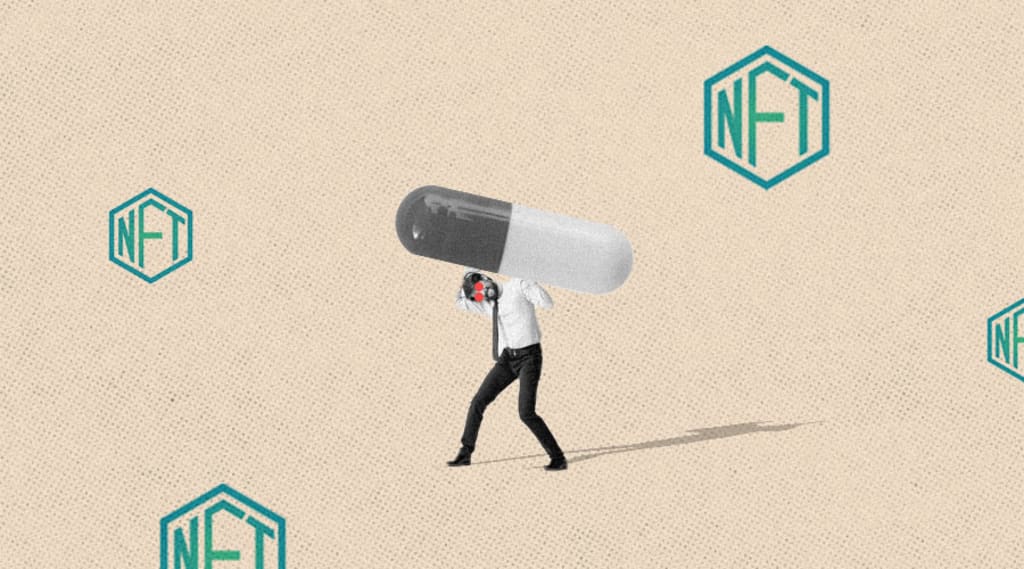"The NFT Prescription: How Blockchain Technology is Changing Medicine"
"The NFT Prescription: Revolutionizing Medicine with Blockchain Technology"

In recent years, the advent of blockchain technology has revolutionized various industries, and medicine is no exception. Non-fungible tokens (NFTs), which are unique digital assets authenticated and secured on the blockchain, have found their way into the medical field, bringing about significant changes and opportunities. One area where NFTs are making a remarkable impact is medical education.
Medical education has traditionally relied on textbooks, lectures, and hands-on training to equip aspiring healthcare professionals with the knowledge and skills necessary for their careers. However, NFTs are reshaping this landscape by introducing a new dimension of interactive and immersive learning experiences.
NFTs enable the creation of virtual medical simulations, anatomical models, and interactive educational content that can be accessed by students and professionals worldwide. These digital assets provide a realistic and engaging platform for learning, allowing students to explore complex medical concepts in a visual and interactive manner. By leveraging blockchain technology, these NFT-based educational resources can be securely accessed and shared, ensuring their authenticity and integrity.
Moreover, NFTs also open up avenues for collaboration and knowledge exchange among medical professionals. Medical schools, universities, and research institutions can create and trade NFTs representing their expertise, research findings, or breakthrough medical innovations. These unique digital assets can be tokenized and exchanged on NFT marketplaces, fostering a decentralized ecosystem where medical knowledge can be accessed and valued.
NFTs in Telemedicine and Remote Patient Care
With the rapid advancement of telemedicine and remote patient care, NFTs have emerged as a valuable tool for enhancing these practices. Telemedicine allows patients to receive medical consultations and treatment remotely, breaking geographical barriers and improving access to healthcare. NFTs complement this shift by enabling the secure storage and transfer of medical records and patient data.
By utilizing NFTs, patients can have full control over their medical records, granting access to healthcare providers when needed. The decentralized nature of blockchain technology ensures that patient data remains secure and tamper-proof, mitigating concerns about data breaches and unauthorized access. This enhanced security and transparency foster trust between patients and healthcare providers, enabling more efficient and personalized care.
Furthermore, NFTs can also play a role in facilitating remote diagnosis and second opinions. Medical professionals can tokenize their expertise and diagnostic services as NFTs, allowing patients to seek consultations and opinions from specialists around the world. Through NFT marketplaces, patients can connect with healthcare professionals who possess the specific knowledge and experience relevant to their medical condition, ultimately improving the quality and accuracy of diagnoses.
Privacy and Ethical Considerations with NFTs in Medicine
While NFTs offer numerous benefits to the field of medicine, it is crucial to address the privacy and ethical considerations that arise with their implementation. As medical data becomes increasingly digitized and stored on the blockchain, safeguarding patient privacy becomes paramount.
Encryption and secure access protocols must be implemented to ensure that sensitive patient information remains confidential. Additionally, strict regulations and guidelines should be established to govern the collection, storage, and usage of medical data within the NFT ecosystem. These measures can help prevent unauthorized access, data breaches, and potential misuse of patient information.
Ethical considerations also come into play when integrating NFTs into medicine. It is essential to ensure that the creation and trade of medical NFTs adhere to ethical standards and respect patient rights. Healthcare professionals must exercise caution and responsibility when tokenizing their expertise, research, or patient data. Transparent consent processes and clear guidelines for data usage and ownership are imperative to maintain trust and integrity within the NFT-driven medical landscape.
Conclusion
In conclusion, blockchain technology and NFTs are transforming the medical field in various ways. Through their integration into medical education, NFTs offer interactive and immersive learning experiences, revolutionizing the way aspiring healthcare professionals acquire knowledge. In telemedicine and remote patient care, NFTs enhance the security, accessibility, and quality of healthcare services, bridging gaps and improving patient outcomes. However, it is crucial to address privacy and ethical considerations to ensure the responsible implementation of NFTs in medicine.
About the Creator
tompeter1123
https://www.jump.trade/





Comments
There are no comments for this story
Be the first to respond and start the conversation.